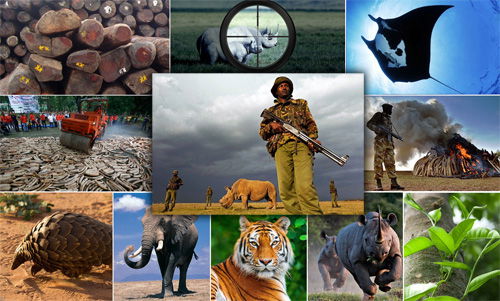
The wildlife trade generates $23 billion a year for transnational criminal organizations, according to Homeland Security Investigations, whose estimate includes parallel sales in illegal timber. The agency ranks wildlife trafficking as the fourth-largest source of illicit revenue globally after drugs, human smuggling and counterfeit goods.
It is an example of what the U.S. government describes as “crime convergence” — multiple sources of illegal revenue that can create more paths to take down the same structure.
Governments in Central and South America, including Suriname’s, have banned poaching and wildlife trafficking. But enforcement is spotty and poachers face little risk of prosecution, according to a new report by the D.C.-based International Fund for Animal Welfare.
Kindly,Subscribe with your Valid Email Address and receive Relevant Notifications to your active Device with Professionalism.
Thankyou for the Scheduled Quality Ample Time.
